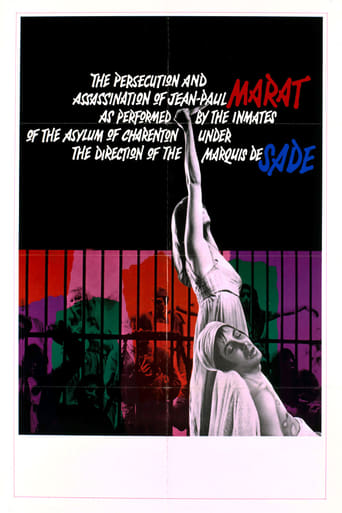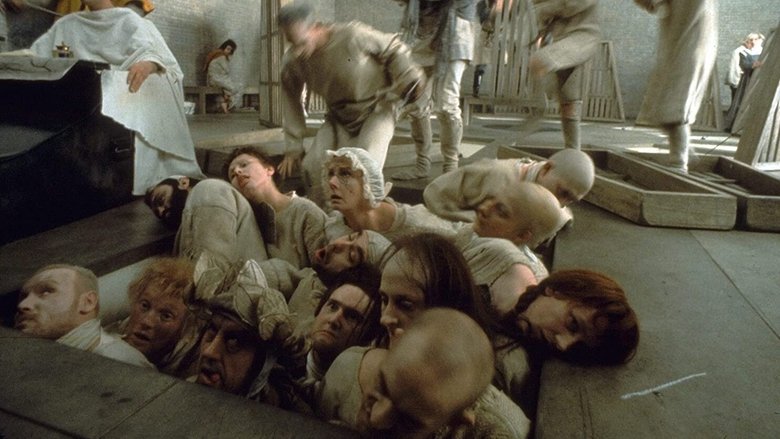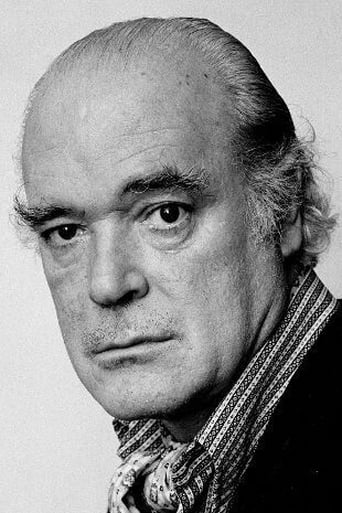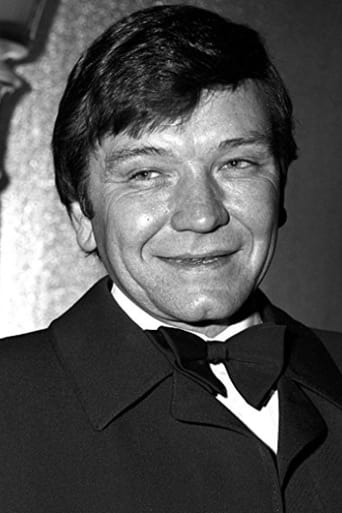The Persecution and Assassination of Jean-Paul Marat as Performed by the Inmates of the Asylum of Charenton Under the Direction of the Marquis de Sade


The Persecution and Assassination of Jean-Paul Marat as Performed by the Inmates of the Asylum of Charenton Under the Direction of the Marquis de Sade (1967)
In Charenton Asylum, the Marquis de Sade directs a play about Jean Paul Marat's death, using the patients as actors. Based on 'The Persecution and Assassination of Jean-Paul Marat as Performed by the Inmates of the Asylum of Charenton Under the Direction of the Marquis de Sade', a 1963 play by Peter Weiss.
Watch Trailer
Cast


Reviews
In an insane asylum, the Marquis de Sade directs Jean Paul Marat's last days through a theater play. The actors are the patients.Did something like this actually happen? I could imagine the Maquis de Sade putting this sort of thing together, because what else is he going to do with his time? But did they actually allow this? And, of course, the real inmates could not possibly have been such good actors and singers... could they? As others have noted, this film can be enjoyed by anyone but probably has much more significance for those who grasp the politics and philosophy of the French Revolution. To try to fully comprehend the class distinctions and other angles without some background would be a challenge. To say I fully grasped the competing views of the inmates, Sade and the warden would be a lie.
This is one of a number of films that came out in the late 60s early 70s that challenged society at the time. Others I can think of include A Clockwork Orange, Women in Love and The Devils (the latter, almost impossible to get on DVD these days, but I have a copy!).I had not seen Marat/Sade for decades until my daughter (doing a degree in drama production) found her university making a production of it with she cast in the Glenda Jackson role. I managed to find a copy of the DVD and we watched it several times together. She was so blown away she nearly quit the part because of the perceived difficulty.This is not an easy production to watch and its intensity profound, its finale frightening. The acting, particularly Patrick Magee, is spell binding.Others have commented on plot and substance but in my mind they are secondary to the sheer brilliance of concept, screenplay, and execution. This is a production for theatre people. The casual viewer will be bored. But IMHO one of the great works of all time.
The play absolutely deserves every award it has received. It's a serious but blackly humorous -- or humorously black -- discussion of politics, philosophy, and just what constitutes sanity, with enough madness to hold our attention and enough roots in the real world that we can't easily dismiss the points it makes.In the film there are few directorial choice that I might quibble with, and there is one (not very important) change I definitely disagree with... but overall it's a surprisingly good job of translating the first Broadway production to the screen.(I have both the Caedmon complete recording of the Broadway production and a copy of the film, and I've played de Sade, so I'm a bit more aware of the details than most viewers would be. Alas, I can't read German so I can't compare any of these to the "real" original.) If you can find a good live production of Marat/Sade, see it. If you can't, or if you want to revisit it, the film isn't too far behind.
This movie is about a play the inmates of a Charenton lunatics asylum are supposed to perform in 1808, under the direction of the former marquis De Sade, one of them. The main character is Marat, a nobody, who became one of the most blood thirsty leaders of the French Revolution. He was himself murdered by Charlotte Corday, a young woman from Caen in Normandy, who was supposedly a descendant of the great Corneille, who wrote "Le Cid", probably the most famous of French tragedies of the Golden Age. This is filmed theater, not very interesting, and even rather boring. But one has to acknowledge that Glenda Jackson's performance is stunning. She probably never was a pretty woman, just average, and now, as she grew older, she's quite ugly. But she had that flame in her eyes...




